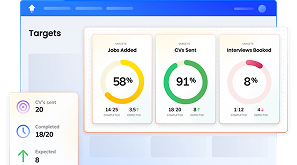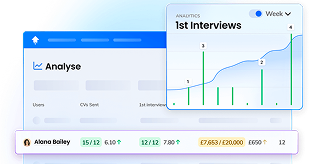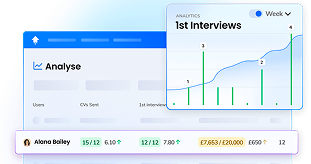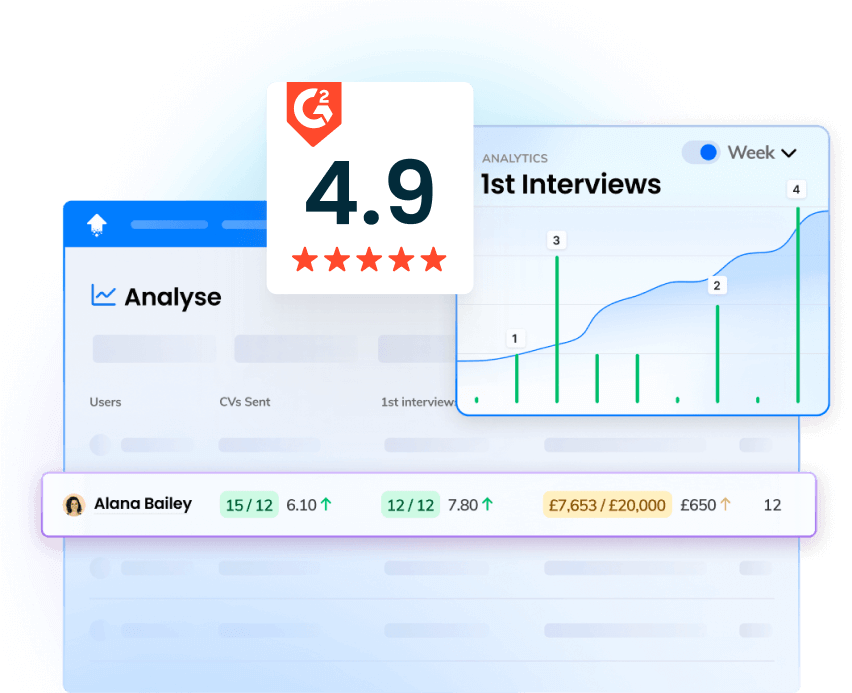For most recruitment agencies, HR is the last hire you make. There are recruitment businesses with decades on the clock who don’t have a full-time HR person in the business.
I don’t believe in any of these companies; there’s a deep-rooted desire not to follow good practice. More that the features of the HR function can be done by others, without the added expense.
Internal recruitment’s managed by you, or the last recruiter you deemed not good enough to be client-facing. Operations are taken care of by the Office Manager. So there’s plenty of paper and good restaurants for the monthly winners. Payroll’s managed by Accounts. And every touch point with your staff is done by their manager.
So, what’s the point of HR?
When a new recruitment business springs into life, every role needs to be revenue generating. New hires are rarely more than mathematical evaluations. The hiring decision boils down to the opportunity cost.
While early senior hires will have their own clients. Junior hires will be judged on their ability to get up to scratch in the shortest time possible.
It’s a race to be profitable.
Not only is HR non revenue-generating, and so a cost to the company, but in the early days of business you don’t have the employees to justify the expense. What can HR do with 4 staff?
Of course, as the business grows, and you’ve “done just fine without HR anyway”, when’s the tipping point? When does an HR function suddenly make sense?
The answer to that question will depend on your own outlook. There’s no rule. No measurement to stick to. No industry standard. But the first time one of your staff tells you they’re struggling, it’s probably too late.
That’s if they tell you at all. Chances are they won’t.
They also won’t tell you about suicide being the biggest killer for males under 45 in the UK. Or how harrowing the statistics are for women too.
I'm not saying someone in your team will become part of those statistics just because you don't have HR. But it's certainly more likely.
Recruitment’s a tough job
That’s not news. Recruitment’s a job of constant disappointment. Continuous knock-backs. “Champagne and razorblades.” It’s not for the faint-hearted or flimsy.
Of course, it’s the best job in the world when things are going well. Everything you touch turns to gold.
Only, when it’s going badly, the opposite’s true. Nothing comes in. The same activities that were bringing in deals last month all of a sudden don’t cut the mustard. It can be a lonely place.
The higher someone rises through the ranks, the more stress can radiate through their system.
And the problem is, as great as you are, dealing with burnout, stress, bereavement or loss, in someone you employ isn’t something you’re qualified to handle.
Sure, you’re a people person. You’re able to have difficult conversations. Remain impartial. Show consideration and empathy. But it’s incredibly likely you’ll never get that chance. After all, people don’t tend to be vulnerable with the person paying their salary.
So how do you give your team of stressed, high-octane, life-on-the-edge recruiters the support they need?
Acceptance is the first step
We’re probably past the point of mental wellbeing being taboo. Thankfully. Even in an industry as boisterous as recruitment. But it wasn’t long ago when it was. You left your troubles at home, and leaders would rather a recruiter was at their desk struggling, than at home healing.
Even coming in at 20% was better than being at home.
The acceptance that strong-minded, perfectly capable, alpha individuals can go through hard times is the first step in supporting them.
Have you ever seen someone who wasn’t affected by the death of a loved one? Me neither. If you wouldn’t call that person weak, you already know wellbeing struggles can come for us all.
Good mental wellbeing starts from the top and permeates down. It’s not something someone at the junior end of your company can improve without help from you. And so you’re the one who needs to set the precedent on what support looks like.
How individualism can create a stronger team
What does good wellbeing support look like? Especially when you don’t have a formal HR function?
It certainly doesn’t look like never being stressed. Remember, both your and your staff’s financial success is directly and inescapably linked to their performance. So it’s likely there’ll be inherent stress in their day to day life. And that’s not leaving any time soon.
But having mechanisms to support and deal with that stress can mean the difference between surviving and thriving. And no, that doesn’t mean a bigger bar tab on Friday.
If you think it’s reductive, or even distasteful to link mental health to financial performance, I agree. But it doesn’t make it any less true. And if supporting the individuals who work for you is done for no other reason, at least the support’s there.
But good support means different things to different people. New parents won’t be worried about missing the Ibiza club trip to “unwind”. Just like new Grads won’t be worried about flex on office hours to do the school run.
And so, while wellbeing support is individual, it should also evolve. What somebody needs will change at every stage of their life and career.
Having a benefits policy that evolves is part of running a grown up business. Regardless of its size, age or stature.
Just like you don’t manage everyone in the same way, this is something you should be adapting to the needs of the people you employ.
Here are some ideas to improve their mental wellbeing.
- Can you offer mental health apps? Like Calm or Headspace?
- How can you incentivise and support downtime?
- Can you explore the relationship your team has with alcohol? And ask whether it’s healthy?
- Can you explore what you do to encourage teamwork? And people being happy with their environment?
- Look at the steps you’re taking to ensure radical candour. Are staff being comfortable challenging the status quo, each other, and themselves?
- Check the support you’re giving managers to help them tackle difficult conversations. To make sure they’re supported as well as their team, and knowing when to escalate a situation
- Can you treat time off less like a reward for placements or good behaviour?
- Could you organise a day of team volunteering?
- Look at the personal budget each recruiter has to design their own support. Can you arrange for personal counselling? Business coaching? Further education?
- Perhaps most crucially, can you look at the steps you have in place for escalating serious issues? There should be links to The Samaritans, Mind, and other charities in a convenient, private location.
The benefits of supporting your team with their mental wellbeing are vast.
Not having a downbeat and downtrodden workforce will work wonders for the morale of the company, and positively impact your profits too.
You’ll improve staff retention, individual happiness, your financial success, their financial success, cultivate a better brand, become a more successful hirer and find about another 100 positive outcomes too.
The risks of not supporting your team? Well, we know what they are. It’s probably time we fought back.
This list from Mind contains a list of numbers you can store in your staff portal to help with any issues they’re currently experiencing.
Good mental wellbeing in business starts at the top.
Make sure you’re making the right moves and everyone else will follow.



















